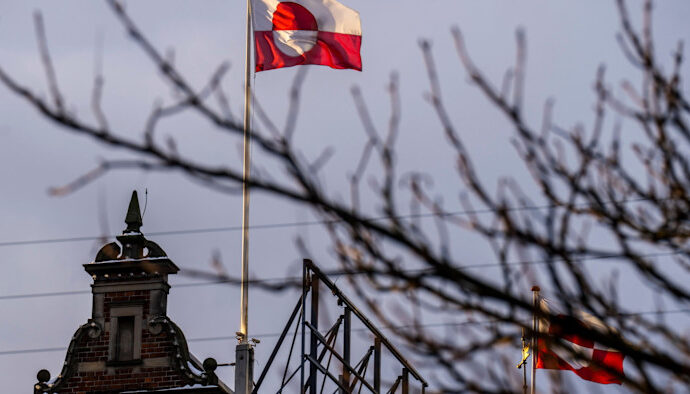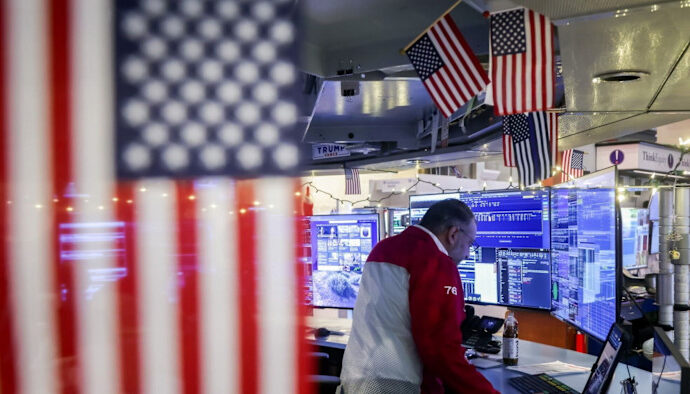Unlock the Editor’s Digest for free
Roula Khalaf, Editor of the FT, selects her favourite stories in this weekly newsletter.
Indonesian businesses are raising alarm over a slowdown in manufacturing and domestic consumption even as headline GDP figures show growth accelerating.
South-east Asia’s largest economy, a commodities powerhouse, is grappling with waning purchasing power, a shrinking middle class and mass lay-offs in manufacturing at a time when President Donald Trump’s tariffs on US trading partners are increasing global uncertainty.
Economists and businesses said that a bullish GDP data release this week probably reflected government stimulus and export frontloading ahead of the US tariffs coming into effect. The economy expanded 5.1 per cent in the second quarter on a year earlier, beating expectations, after hitting a three-year low of 4.9 per cent in the first three months.
“In meeting rooms, our strategy is no longer on expansion but on surviving . . . on how not to cut jobs, on how to keep the supply chain alive and how to pay wages,” Shinta Kamdani, chair of the Indonesian Employers’ Association (Apindo), told the group’s annual meeting in Bandung this week. A majority of the association’s members are in labour-intensive manufacturing industries.
The pessimistic tone adds to growing concerns over Indonesia’s ability to maintain the 5 per cent annual growth rate it has delivered over the past decade, save for during the Covid-19 pandemic. President Prabowo Subianto has set a goal of 8 per cent growth every year.
Indonesia’s manufacturing industry has been laying off thousands of workers since the start of the year, with factory activity deteriorating due to weaker domestic demand and competition from rival regional hubs such as Vietnam. Weaker commodity prices are also weighing on the economy.
Shinta said softer consumption had been compounded by a decline in government spending and industrial activity. Prabowo’s administration has cut back expenditure, including on infrastructure, to redirect government funds towards his flagship $28bn free school meals programme.
“Clearly, there is still some slowing down that we see” despite the strong GDP figure, Shinta said.
Apindo called on the government to pick up the pace of deregulation — including on permitting and imports of raw materials — to attract more investment, support manufacturing and create higher-paying jobs.
Recent government data showed Indonesia’s total investment for the second quarter rose 11.5 per cent to Rp477.7tn ($29.1bn). But foreign direct investment in the same quarter fell 7 per cent to Rp202.2tn.
On top of domestic challenges, Indonesia faces a 19 per cent tariff from the US, down from the 32 per cent Trump threatened in April. But the country is not as dependent on trade as some of its regional peers, and the US accounts for just 10 per cent of its total exports.
Jakarta has said the tariff level is manageable.
“With 19 per cent, we are competitive in [south-east Asia], similar to Malaysia and Thailand,” co-ordinating minister for economic affairs Airlangga Hartanto told a news briefing in Bandung.
But consumption — which accounts for more than half of GDP — presents a bigger issue. Recent household spending, auto sales and consumer confidence data have pointed to weakening purchasing power.
“The second quarter’s pace is unlikely to be sustained given the external headwinds and domestic labour market fragilities,” said ANZ Asia economist Krystal Tan. She added that private consumption would remain constrained, though robust government spending could help cushion the slowdown.
The government is preparing another stimulus package, after rolling out $1.5bn in wage subsidies, transport discounts and social aid in June aimed at strengthening domestic spending.
The central bank, which has cut interest rates by 0.75 percentage points this year, has said it was prepared to reduce borrowing costs further.
Budihardjo Iduansjah, chair of the Indonesia Retail and Tenants Association, said businesses would need to start offering discounts to improve sales.
“If we don’t do it, business will get even slower,” he said, suggesting measures such as free mall parking. “We must do something; we cannot be passive.”


